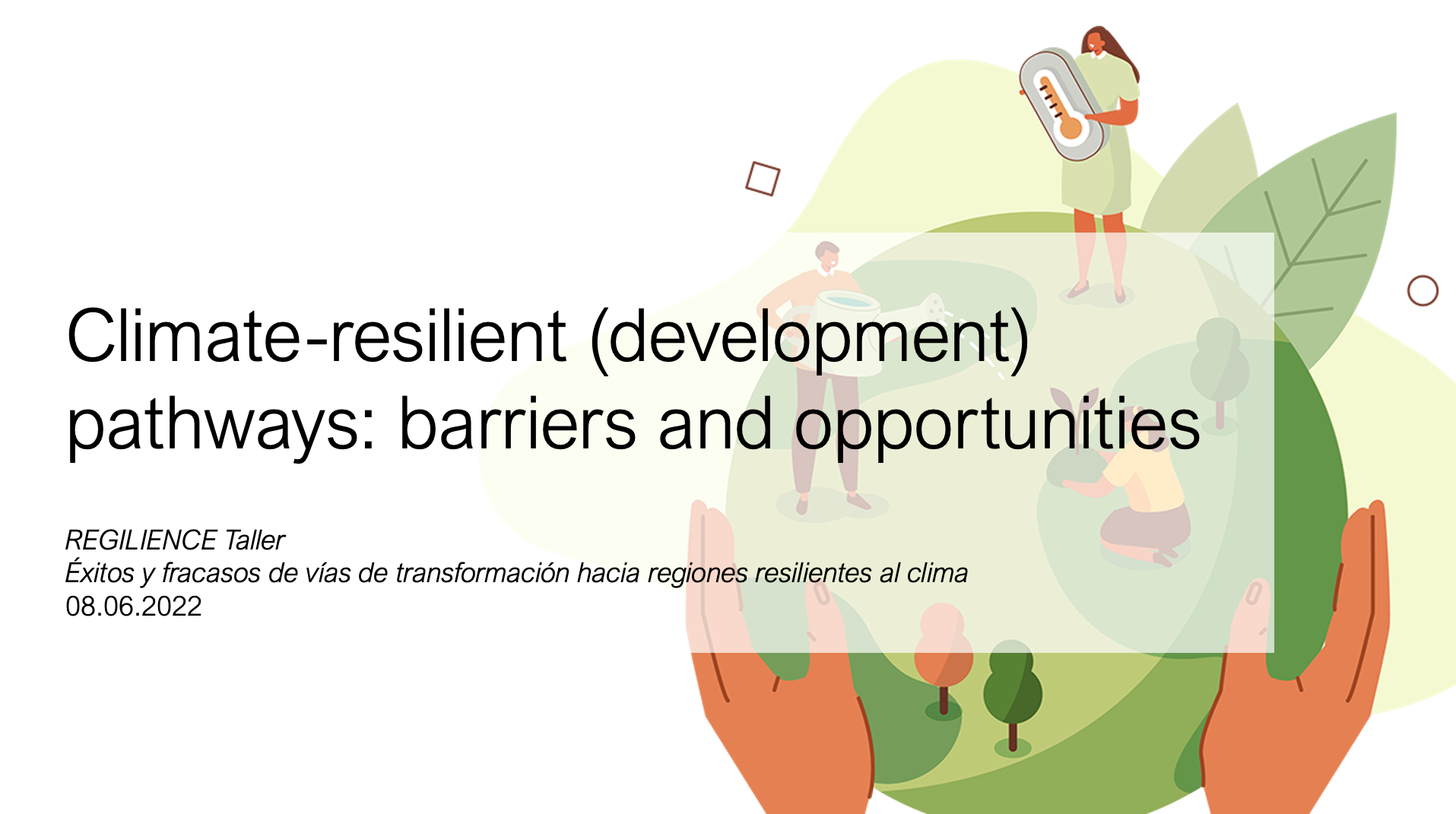
On 8 June, REGILIENCE “traveled” to Spain for a workshop on “Climate-resilient pathways: barriers and opportunities”. Together with the Climate Change Office (Spanish Ministry for Ecological Transition and Demographic Challenge) and six representatives from Spanish regions, several challenges and opportunities facing the implementation of climate-resilient action, including bottom-up approaches, were actively discussed.
All participants agreed that there is far insufficient citizen awareness about the need for climate adaptation and resilience action. Citizen surveys could provide a better understanding of perception and acceptance of adaptation measures, but they are not the norm, although in Catalonia’s bi-yearly survey climate change ranks as one of the top concerns. It was also mentioned that the interest in adaptation, mitigation and climate-resilience in general is growing among economic sector representatives; however, they shall demand rather sector-benefiting solutions without considering possible negative effects of (mal)adaptation on other sectors or geographic areas, e.g. by demanding more freshwater supply.
Several good practice examples of climate adaptation and resilience and lessons learned were highlighted:
- A working group on impact and adaptation (Grupo de Trabajo de Impactos y Adaptación) was established by the Ministry for Ecological Transition and Demographic Challenge (MITERD) and brings together national and regional actors and other stakeholders, facilitating exchanges on a regular basis and ensuring vertical exchange. It also addresses coordination for the engagement with the “EU Adaptation Mission” with those Spanish regions involved in the EU Mission on Adaptation.
- The adoption of national/regional climate change related laws, as for example the 2017 Catalonian law requirement to include climate change as a component of Environmental Impact Assessment (EIA) and Strategic Environmental Assessment (SEA) procedures, as consequent action of justice can halt the development of non-climate-resilient investments, e.g. in large infrastructural projects (as a coastal highway).
- The Spanish Citizens Climate Assembly, which just recently published its final recommendations, is an interesting experience to replicate at the regional levels. It has actively addressed adaptation as well as mitigation.
- Working with platforms such as the Covenant of Mayors (e.g. on the Balearic Islands) brings on board almost all municipalities, leading to the adoption of climate-energy plans, while fostering valuable exchanges between the regional and local levels.
During the meeting, the following constraints or problems in fostering cooperation for climate adaptation were mentioned:
- Lack of horizontal cooperation at the regional level, with climate offices not being involved in the adaptation measures carried out under the scope of different departments.
- Lack of vertical cooperation between the local, regional and national scales that prevent the setup of a governance structure to properly manage coastal areas under risk.
By the end of the month, REGILIENCE is organizing another virtual workshop on “National Adaptation Plans and Strategies in Theory and Practice – Role of the National and Regional Governments”. The objective of this workshop is to assess how the EU and national levels play a part in the success and failure of the green transition at local and regional levels.
Learn more and register at: https://regilience.eu/national-adaptation-plans/